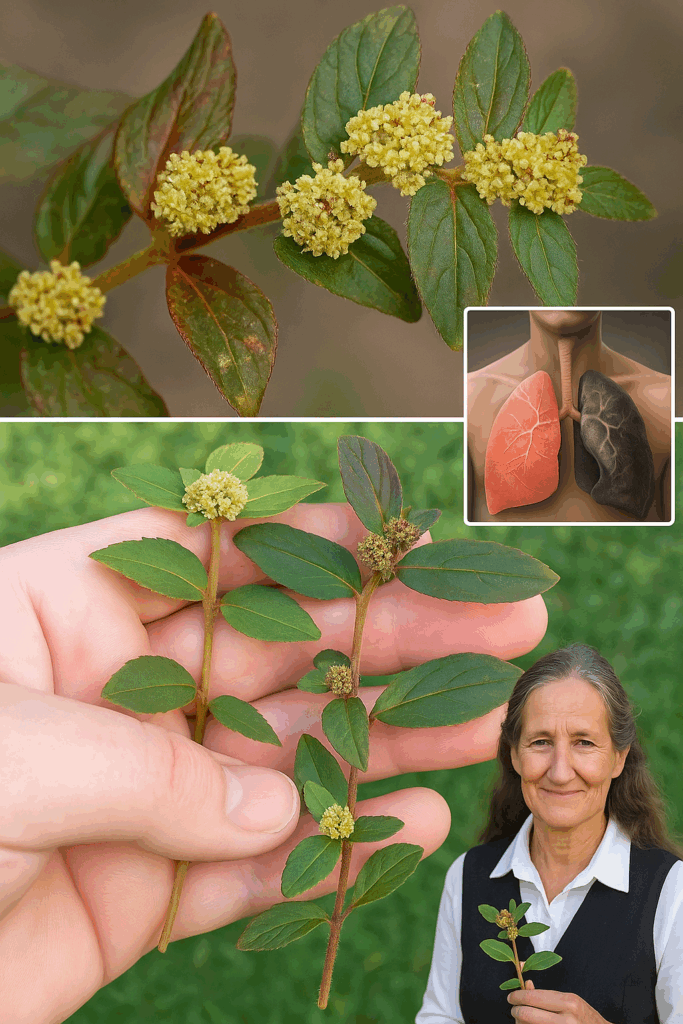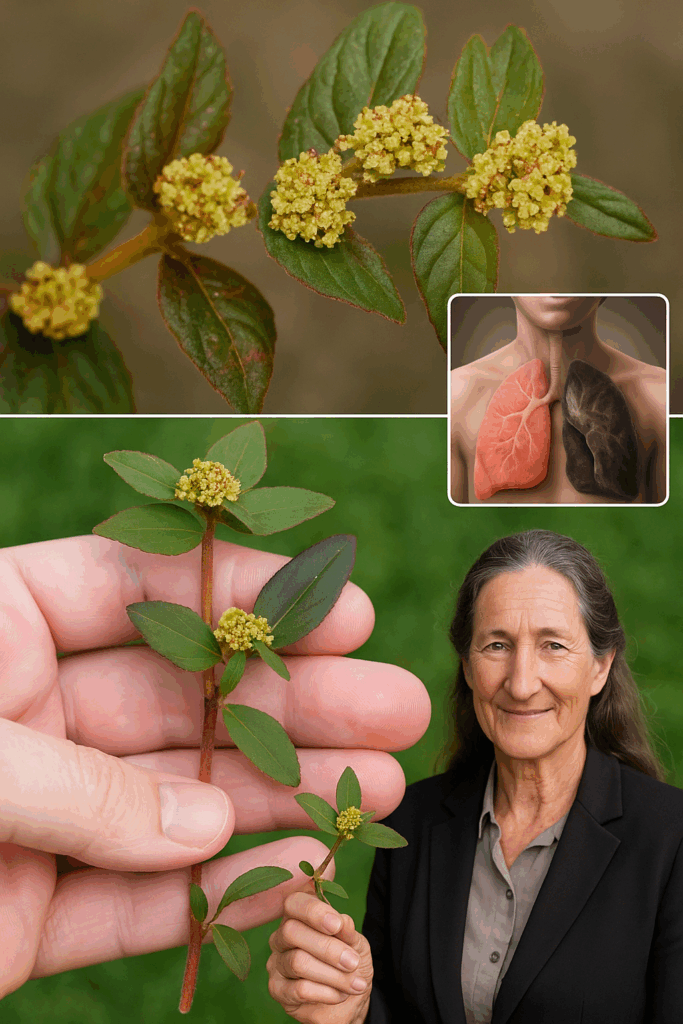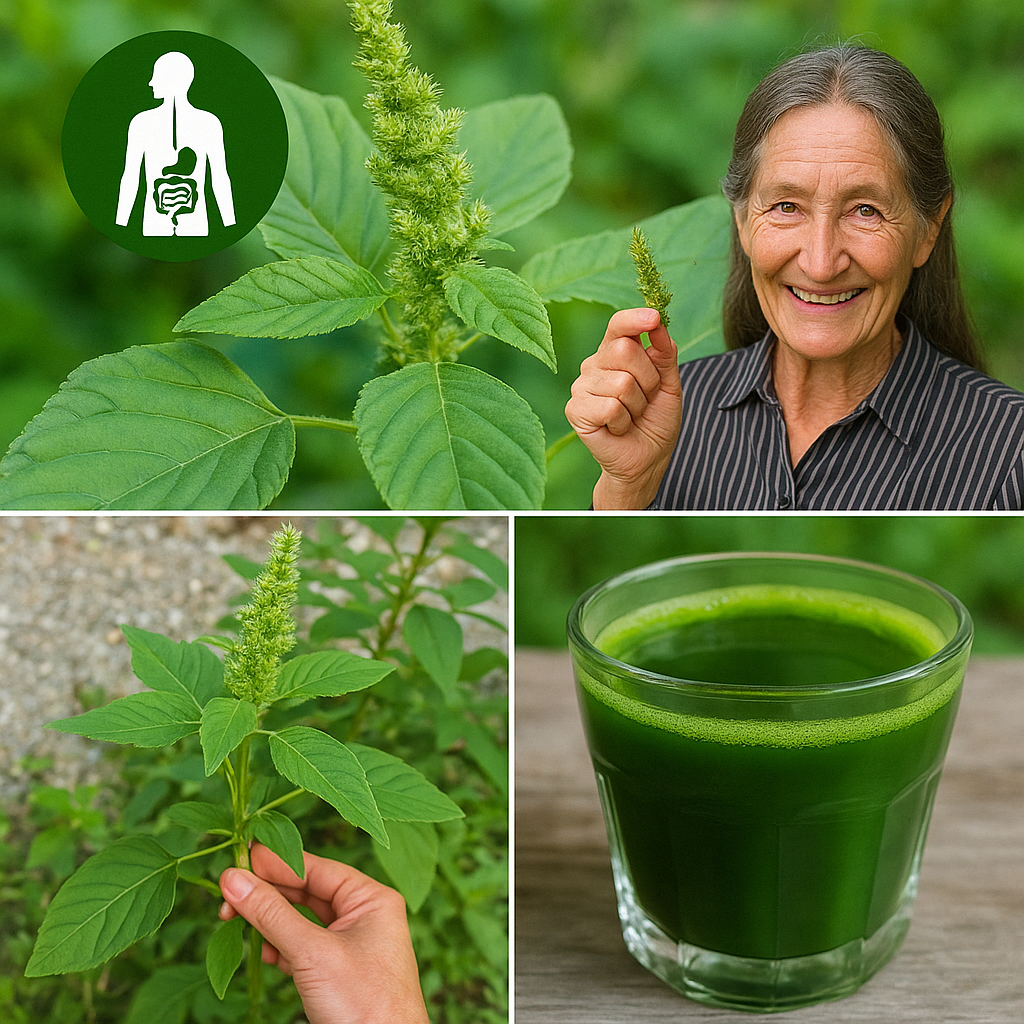Euphorbia hirta, commonly referred to as the asthma plant, is a small yet potent herb that has long been valued in traditional medicine. Found in tropical regions across Asia, Africa, and South America, this wild-growing plant has served generations as a natural remedy for a surprising range of ailments—from respiratory distress to digestive problems and skin issues.
While modern medicine is only beginning to explore its full potential, folk traditions have long tapped into the power of this humble herb. Whether brewed as tea or applied as a paste, Euphorbia hirta is proving to be one of nature’s quiet healers.
Let’s explore its most trusted uses, preparation methods, and important safety guidelines.

🌬️ 1. Respiratory Relief for Asthma and Bronchitis
As its nickname suggests, Euphorbia hirta is most known for its traditional use in treating asthma, wheezing, bronchitis, and dry coughs. The leaves are commonly brewed into a tea believed to relax bronchial muscles, making breathing easier during respiratory flare-ups. In regions with limited access to modern bronchodilators, this plant has served as a first line of support for generations.
💧 2. A Natural Digestive Soother
In traditional medicine systems, Euphorbia hirta is widely used to treat diarrhea, dysentery, and intestinal spasms. Its gentle antimicrobial and anti-inflammatory action may help calm an irritated gut lining and support digestive balance. This makes it a go-to remedy in rural areas where access to pharmaceuticals is limited.
🩹 3. Topical Relief for Skin Problems
Applied externally, Euphorbia hirta is used to treat a variety of skin ailments:
- Boils and abscesses
- Rashes and eczema
- Warts and fungal infections
Traditionally, a paste made from fresh leaves is applied directly to the affected area. The plant’s antimicrobial and soothing properties may help reduce inflammation and speed up healing.
🛡️ 4. Fights Bacteria, Viruses, and Fungi
Euphorbia hirta contains a spectrum of natural compounds with broad-spectrum antimicrobial activity, making it potentially effective against pathogens that cause skin infections, UTIs, and intestinal issues. While modern lab studies are still ongoing, early results suggest this herb may combat common bacterial strains, yeast, and even some viruses.
🔥 5. Pain and Inflammation Support
Whether consumed as a tea or used as a poultice, Euphorbia hirta has shown promise in relieving joint pain, muscle strain, and headaches. Its anti-inflammatory compounds may work similarly to mild analgesics, providing comfort without the side effects of synthetic drugs.
🌡️ 6. Reduces Fever Naturally
In traditional systems, Euphorbia hirta is considered an antipyretic, or fever-reducing herb. A warm infusion of the leaves is sipped to help cool the body and regulate temperature. The gentle sweat-inducing action is believed to aid in breaking fevers and improving recovery.
🚽 7. Supports Urinary Health
Folk healers have long used Euphorbia hirta to treat urinary tract infections (UTIs), bladder inflammation, and frequent urination. The herb is thought to have mild diuretic properties that encourage the flow of urine and help flush out harmful bacteria.
🧪 8. Protects Against Oxidative Stress
Antioxidants found in Euphorbia hirta may play a role in reducing cellular damage caused by free radicals, a root contributor to chronic diseases and aging. This protective effect adds another layer of wellness to its traditional uses.
🍵 How to Use Euphorbia Hirta Safely
1. Tea or Decoction
- Boil a handful of fresh or dried leaves in water for 5–10 minutes.
- Strain and let cool slightly.
- Drink 1 cup daily as needed for respiratory, digestive, or urinary support.
2. Paste for Skin Use
- Grind fresh leaves into a smooth paste using a mortar and pestle.
- Apply directly to affected skin areas.
- Leave for 15–20 minutes, then rinse gently with clean water.
3. Steam Inhalation (for respiratory relief)
- Boil the leaves in a pot of water.
- Inhale the steam carefully to soothe breathing passages and loosen mucus.

⚠️ Important Precautions
While Euphorbia hirta has a long history of use, it’s important to treat it with respect:
- Avoid large doses: High intake may cause nausea or gastrointestinal upset.
- Pregnancy and breastfeeding: Not recommended without medical supervision.
- Medication interactions: May interfere with certain drugs—consult your doctor.
- Allergic reactions: Rare, but always start with a small amount to test sensitivity.
This herb is best used for short-term support, and not as a substitute for prescribed medications, especially for severe respiratory conditions.
🌿 Final Thoughts: Ancient Plant, Modern Potential
Euphorbia hirta may be small, but its reach is mighty. As both a respiratory ally and digestive soother, this humble plant has offered relief to communities around the world long before modern medicine caught on. And today, it’s poised for a renaissance as herbalists and researchers alike revisit its healing potential.
Whether you’re seeking natural support for asthma-like symptoms, calming your gut, or exploring traditional skin remedies, this green medicine may offer the gentle, time-tested boost you need.
Just remember: in herbal healing, the key is consistency, moderation, and listening to your body. Let nature work slowly—and powerfully—over time.


